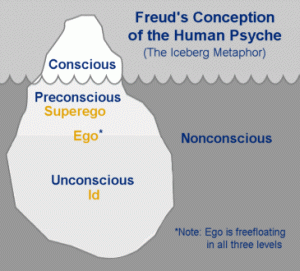Sarkus:
Yes.
The internal cause and effect has internal composition of A as the cause of internal composition B - the effect.
At the point of the A he lacks B, and when he has B he lacks A.
So you affirm that God cannot exist in a pantheistic model by virtue of the necessary change inherent in non-eternal, non-infinite, things?
Ah - the dive into mathematics.
0.99999.... recurring - do you agree that this is infinitely close to 1? (i.e. that there is an infinitely small number between this and 1.0)
Okay, let 0.999999... recurring = X
10X = 9.999999.... recurring.
10X - X = 9.99999.... recurring minus 0.999999.... recurring = 9
Therefore X = 1 = 0.99999.... recurring.
Thus, the infinitely small = 0.
This is a mathematical proof only - and is merely the unreachable limit of the infinitely small.
I do believe there has been a thread on this topic. Anyway, my response is thus:
9 + 9 = 18. In fact, any form of 9 + any other form of 9 = a number ending in 8. Of course, this changes if that number is then added to by 9, but then it simply follows the same pattern as the multiplication table of 9.
In .999... every digit shall be 9. Accordingly, even though it has no end - by virtue of it being an infinite series - if it were to have an end, or any point whatsoever were picked at random - it would be 9.
Thus the value of this sequence, though it does not have an ending, must be accorded to a similar status as every single one of its parts. Lest we violate according it a value of .999...
Ergo .99... *9 = 8.99999.........1.
Also, you fail to recognize that the "proof" you give for .99999 equalling 1 also does not work for .000.......1 (the infinitely small).
.1 * 10 = 1.
.01 * 10 = .1
.000000000...1 * 10 = one space over from .0000000000....1
And if you affirm that 0 = infinitely small, then you get: Infinity/infinity = 0. Yet 0 cannot be the answer to any division problem, as zero cannot be a part of anything.
Appropriately, this shows that both the infinitely small and infinitely large have no finite value, which is utterly in accords with what the word "infinite" means in the first place.
There are an infinite number of infinitely small points between 1 and 2. And there are an equally infinite number of infinitely small points between 1 and 10, or 1 and 10^10^20.
I agree.
Funny, this is actually similar to my proof of the rationality of infinite time. Distance to any infinity is equal at any point, as by definition one can only ever be infinitely far from infinity.
One away from an unreachable limit is unreachable - otherwise you could reach the "one less" limit and then add one - and thus "reach the unreachable". Absurd.
And not true.
I think we've found the equivalent to a 5th Paradox of Zeno if what you say is true.
Consider the ramifications of what you say:
There exists an unreachable.
The point immediatly before the unreachable is also unreachable.
There is no distinguishing factors that would make the second point away from the unreachable, reachable.
Nor the 3rd point...ad infinitum.
Ergo, all points, even an infinite distance away from the unreachable, are themselves unreachable.
Thus, time and space cannot exist.
Now we can acecpt this, and accordignly discuss things from what amounts to an Eleatic Idealist standpoint, but I rather think Zeno is wrong, as are you.
I base my argument on what can be considered a crude analogy and a more rigorous disproof. The crude analogy first:
I can either slide off a cliff or stand an inch away from the cliff's edge.
The more rigorous:
The quality of "unreachable" can only be ascribed to the infinite.
The infinite - x != infinite.
Ergo, no number which is not infinite has the quality of "unreachablility", including infinity - 1.
Infinite does not mean ALL.
It merely means "not ending".
If you take the numbers from 1 to INFINITY - there are an INFINITE number of ODDS and an INFINITE number of EVENS.
The process you describe with the erasure of the number would turn the system from being "an accurate recording of an infinite process", to "a system which goes on for an infinite period of time but which gives no proof".
If the list is supposed to be "an infinite list displaying all whole numbers sequentially", then it also fails.
In either case, you do not decrease infinity, nor if this is held to be spatially extended do you make the line less than infinite after that point. Before the point you have made it finite (as it ends). However, as the line progresses on after the break for infinitely, that new line is infinite. Although if you are dealing with such a system, at no point in finite time will it be infinite.
They are only tend to 0 when compared to the whole - not in isolation. As you look closer and closer at the infinite whole, any finite constituent part tends to 0 in comparison.
As I have argued elsewhere, the ratio of any finite part to infinity as one looks deeper and deeper at infinity, would diminish to the infinitely small, but not to 0. For once again, if it is a part, it cannot have a value of zero, as zero * x = 0.


